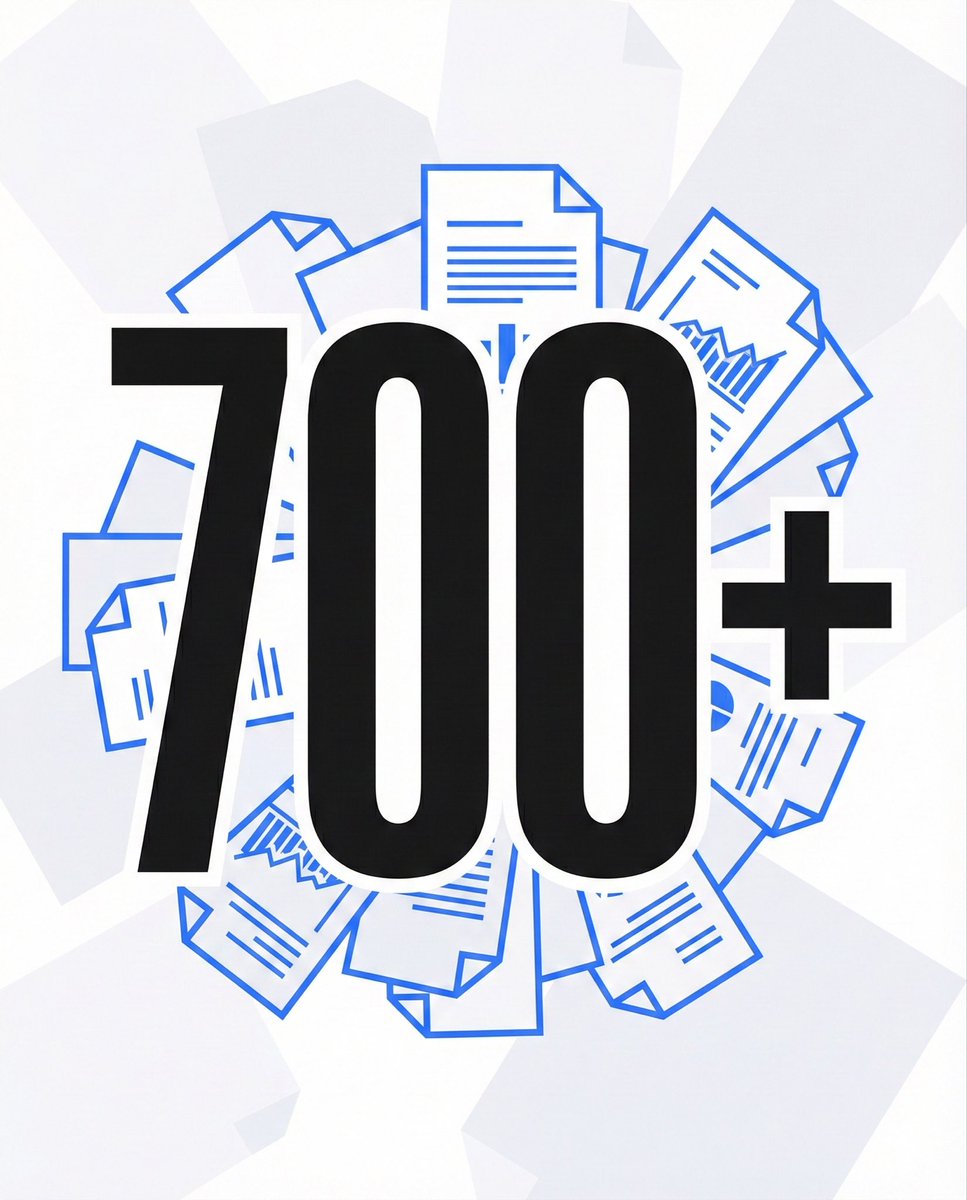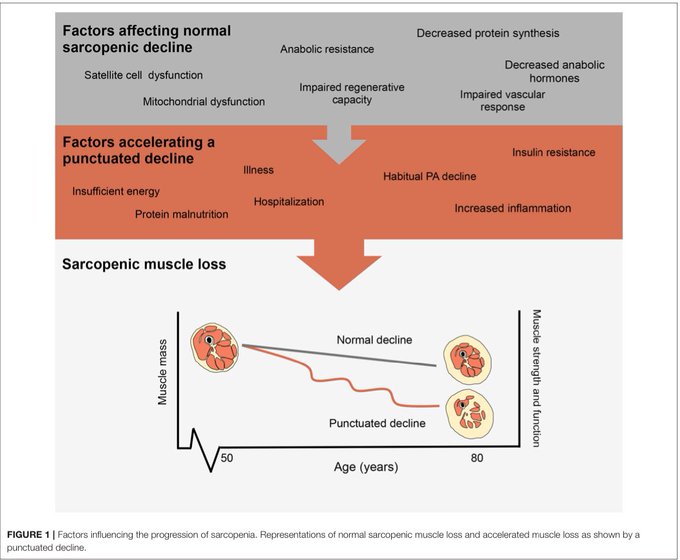
Strength is Medicine.
Helping adults 40+ stay strong, build muscle, and extend healthspan through evidence-based strategies.
Free Strength Starter Plan ↓
How to get URL link on X (Twitter) App


 The International Society of Sports Nutrition calls creatine monohydrate the single most effective legal supplement for increasing high-intensity exercise capacity and lean body mass.
The International Society of Sports Nutrition calls creatine monohydrate the single most effective legal supplement for increasing high-intensity exercise capacity and lean body mass.

 Study: Araújo et al., Mayo Clin Proc 2025
Study: Araújo et al., Mayo Clin Proc 2025

 Side effects in clinical trials:
Side effects in clinical trials:
 Sarcopenia was defined as loss of muscle mass—not strength. But studies using DXA and BIA showed weak associations. So strength took over.
Sarcopenia was defined as loss of muscle mass—not strength. But studies using DXA and BIA showed weak associations. So strength took over.

 Many people with B12 deficiency are misdiagnosed because they only get a serum B12 test—which can miss real deficiencies. Let's break it down 👇
Many people with B12 deficiency are misdiagnosed because they only get a serum B12 test—which can miss real deficiencies. Let's break it down 👇

 Sarcopenia leads to a decline in type II muscle fibers, which are crucial for strength & power. Research shows that satellite cells—responsible for muscle repair—also decline with age, reducing muscle regeneration.
Sarcopenia leads to a decline in type II muscle fibers, which are crucial for strength & power. Research shows that satellite cells—responsible for muscle repair—also decline with age, reducing muscle regeneration. 


 1/ Sarcopenia—the age-related loss of muscle—leads to frailty, falls, and a loss of independence. But research proves resistance training can reverse it. 🔥
1/ Sarcopenia—the age-related loss of muscle—leads to frailty, falls, and a loss of independence. But research proves resistance training can reverse it. 🔥
 The ACTN3-R577X polymorphism is one of the most well-studied genetic variations in muscle function & athletic performance. It affects α-actinin-3, a protein in fast-twitch (type II) muscle fibers, which are key for explosive strength & power movements.
The ACTN3-R577X polymorphism is one of the most well-studied genetic variations in muscle function & athletic performance. It affects α-actinin-3, a protein in fast-twitch (type II) muscle fibers, which are key for explosive strength & power movements.

 When you reduce your daily steps, even briefly, here’s what happens:
When you reduce your daily steps, even briefly, here’s what happens:
 📌 Study 1: "Effects of Resistance Training in Healthy Older People with Sarcopenia: A Systematic Review and Meta-Analysis" (Chen et al., 2021)
📌 Study 1: "Effects of Resistance Training in Healthy Older People with Sarcopenia: A Systematic Review and Meta-Analysis" (Chen et al., 2021)
 @dabonillao @ExphysPhD @darrencandow @DrCreatine 📌 Aging & Sarcopenia = Muscle & Cognitive Decline
@dabonillao @ExphysPhD @darrencandow @DrCreatine 📌 Aging & Sarcopenia = Muscle & Cognitive Decline
 Did you know fat can infiltrate muscle? This process, called myosteatosis, is central to sarcopenic adiposity—a condition where fat disrupts muscle strength and function.
Did you know fat can infiltrate muscle? This process, called myosteatosis, is central to sarcopenic adiposity—a condition where fat disrupts muscle strength and function.

 Muscle aging is influenced by several factors:
Muscle aging is influenced by several factors:

 Healthy mitochondria:
Healthy mitochondria:https://twitter.com/jploenneke/status/1874612733221720542Maximal Strength = Heavy Loads

 Sarcopenia has evolved from being defined simply as low muscle mass to a condition that also includes reduced muscle strength and function. This shift highlights its role not just as a physical problem, but as a systemic issue with broad health implications.
Sarcopenia has evolved from being defined simply as low muscle mass to a condition that also includes reduced muscle strength and function. This shift highlights its role not just as a physical problem, but as a systemic issue with broad health implications. 

 @reshmaamerchant @mackinprof @KostasProko 2️⃣ How were they chosen?
@reshmaamerchant @mackinprof @KostasProko 2️⃣ How were they chosen?
 The study followed 2,563 older adults (65–91 years) over 9 years. It assessed muscle power (sit-to-stand tests) and adiposity (BMI, waist circumference, body fat %, fat index).
The study followed 2,563 older adults (65–91 years) over 9 years. It assessed muscle power (sit-to-stand tests) and adiposity (BMI, waist circumference, body fat %, fat index). 
 @scottisaacsmd @DrCreatine @darrencandow 2/ Here’s how it works:
@scottisaacsmd @DrCreatine @darrencandow 2/ Here’s how it works:
 We know about the ease and predictive power of handgrip testing. But what if an injury prevents this test?
We know about the ease and predictive power of handgrip testing. But what if an injury prevents this test?